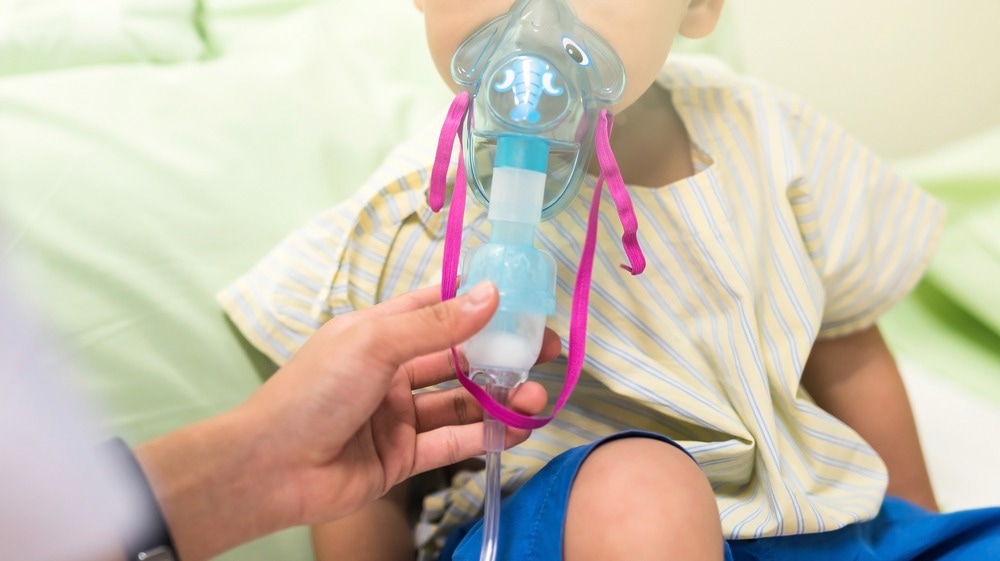On November 1, 2022, Pfizer announced its maternal vaccine against the respiratory syncytial virus (RSV) to be almost 82% effective in protecting infants for the first 90 days of life against severe illness due to RSV. Furthermore, the vaccine was found to remain 69.4% effective in preventing severe RSV illness throughout the first six months of life.
Study: Pfizer Announces Positive Top-Line Data of Phase 3 Global Maternal Immunization Trial for its Bivalent Respiratory Syncytial Virus (RSV) Vaccine Candidate. Image Credit: Blanscape / Shutterstock.com
What is RSV?
RSV is the most common cause of respiratory infections in children aged two years and younger. In fact, some estimates indicate that over 60% of children will be infected with RSV by the time they reach one year of age, with nearly all children likely to be infected by age two.
RSV infection typically causes cold-like symptoms such as a runny nose, reduced appetite, coughing, sneezing, fever, and wheezing. Nevertheless, RSV can cause severe illness in a significant number of children under the age of one and, as a result, is the leading cause of death due to respiratory infections in this patient population.
Several factors can increase a child’s risk of severe illness due to RSV, which include age less than one year before or during peak incidence of the virus, as well as prematurity, low birth weight, and the presence of comorbidities such as congenital heart disease, chronic respiratory diseases, and immunodeficiency. In addition, children with an older sibling, as well as those who are exposed to cigarette smoke and are not breastfed, are also at a greater risk of severe RSV infection.
Every year we see high levels of RSV cases among babies in the U.S. with some regions reporting hospital admission rates higher than normal this year.”
Pfizer’s RSVpreF vaccine
There remains no specific treatment available for RSV infection; therefore, children infected with this virus, including those hospitalized with severe illness, typically receive symptomatic care until the infection eventually clears their systems. The lack of both preventative and antiviral treatments available for RSV has led Pfizer to develop and test the efficacy of a bivalent RSV perfusion vaccine candidate known as RSVpreF or PF-06928316.
Previous research conducted at the United States National Institutes of Health (NIH) has provided detailed information on the crystal structure of prefusion F, an important form of the RSV viral fusion (F) protein responsible for its entry into host cells. Moreover, antibodies specific to prefusion F were found to effectively prevent RSV infection from occurring.
This information was then used to support the development of RSVpreF, an investigational RSV vaccine candidate that comprises equal amounts of recombinant RSV prefusion F from subgroups A and B.
Clinical trial results
RSVpreF has been clinically evaluated in two trials, including the RSV vaccine Efficacy Study iNOlder adults Immunized against RSV disease (RENOIR) trial and the MATernal Immunization Study for Safety and Efficacy (MATISSE) study.
The MATISSE study is an ongoing randomized, double-blinded, placebo-controlled Phase III clinical trial study aimed towards evaluating the safety, efficacy, and immunogenicity of RSVpreF. To this end, about 7,400 pregnant women during the late second to the third trimester of their pregnancy were enrolled in the trial to receive a single dose of either Pfizer’s RSVpreF or the placebo vaccine.
Infants born to mothers who received either vaccine were followed for at least one year to determine the safety and efficacy of the vaccine. Furthermore, 50% of these infants were monitored for two years.
Vaccine efficacy of 81.8% for preventing severe lower respiratory tract illness (LRTI) was reported through the first 90 days of life. This high efficacy against severe illness was retained in 69.4% of infants by the time they reached six months of age.
In addition to the protection conferred against severe LRTI, Pfizer reports that the vaccine protected against non-severe medically attended LRTI in 57.1% and 51.3% of infants through the first 90 days and six months of life, respectively.
“A maternal vaccine with high efficacy that can help protect infants from birth could substantially reduce the burden of severe RSV among newborns through six months of age.”
Future outlook
Based on the promising results of the MATISSE study, Pfizer intends to submit a Biologics License Application (BLA) to the U.S. Food and Drug Administration (FDA) by the end of this year. Although no additional participants will be enrolled in the MATISSE trial, Pfizer will continue to monitor infants born to immunized mothers.
